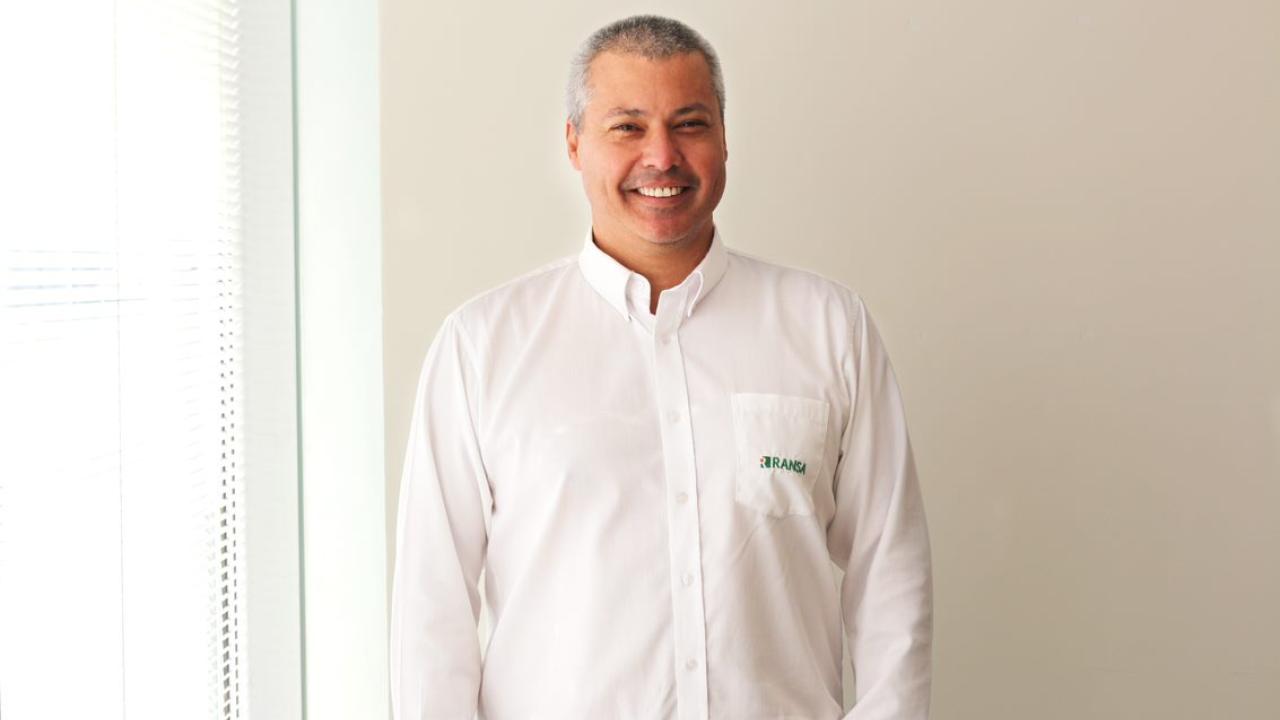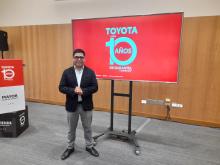
The Peruvian multinational has agreed to strategic mergers and acquisitions that have allowed it to operate in the supply chains of 12 Latin American countries.
Logistics operator Ransa maintains ambitious goals, despite its recent success in recent years. After more than 80 years managing supply chains and designing logistics solutions, the Peruvian company aims to grow 14% by 2024. Ransa currently operates in 12 Latin American countries through 95 locations and more than 9,200 employees. Depending on the context, its services cover sectors such as retail , food, beverages, technology, mining, energy, and others.
"What sets us apart as a logistics operator is our established presence along the entire Latin American Pacific coast, from Mexico to Chile. A logistics platform like this is key to our clients' expansion because it allows them to focus on their core business, while we are the vehicle for growth both locally and regionally," Sergio Torrico, Ransa's Vice President for the Andean and Central American Region , explained to AméricaEconomía .
MERGERS AND ACQUISITIONS
On the other hand, the Chancay Megaport, a project that, according to SUNAT, has already recorded more than US$400 million in imports and exports between November and March, has had a positive impact on Ransa's operations. According to Torrico, the port's opening has increased the "import pie," and other countries like El Salvador want to follow suit, which would contribute to the company's "regionalization" strategy.
This approach reached an important milestone in July 2023, when Ransa announced its merger with TCF, a company specializing in land freight transportation, container storage, and repair services in Central America, Mexico, and Colombia. Prior to the merger, TCF served more than 13 ports and handled over 180,000 cargo movements annually. Ransa thus began to cover the entire end-to-end logistics chain in a dozen countries.
"We didn't have transportation from the port to the warehouses, nor did we have international transportation. TCF was very strong in Central America. Now we've expanded our operations to Peru, and crossing borders has been very important for Ransa," Torrico says.
Subsequently, in March 2024, the multinational acquired Loginsa, a Chilean logistics operator focused on cold and dry storage, distribution, and last-mile deliveries. The consortium specialized in the pharmaceutical industry, with more than 230,000 square meters of storage and more than 150 clients from various sectors in Chile. The acquisition has allowed Ransa to expand its operations to 95 locations in Latin America and cover more than 4.25 million square meters of infrastructure.
“When we acquired Loginsa, we began to manage the medical sector, which we didn't previously dominate. And the integration of two companies contributes to a stronger work culture. We have a customer-centric program called Mode C: there we pursue a focus on safety, quality, environmental commitment, and efficient cost management, which is supported by the collaborative work of our people, but focused on our customers,” the executive added.
On the other hand, Torrico affirms that Ransa's expansion in Central American economies such as El Salvador and Costa Rica was based on the retail sector , which led them to manage supermarket logistics. This has led them to install platforms and cold chains in this region.
In Peru, the focus is on the mining sector, given its importance in the Andean country. He does not rule out Ransa boosting logistics in this sector in Honduras or Guatemala, where there is some mining production. However, the vice president points out that the key is to transfer the knowledge and experience of personnel from countries with established logistics chains to new markets.
THE AXIS OF SUSTAINABILITY
In parallel with the acquisition of new players, Ransa received another significant boost when, in September 2024, the International Finance Corporation (IFC) granted it US$150 million in financing to consolidate its growth in the region and advance its sustainability strategy. In the last year, the company has recycled 2,255 tons of materials and installed more than 2,500 solar panels at its facilities in El Salvador.
“We are also evaluating electric and gas transportation programs. This also depends on the countries where we operate having adequate infrastructure. For example, in Peru we want to acquire a gas fleet for a project we have with a brewery, and in Central America, we are managing electric fleets. Additionally, we are looking to expand the use of solar panels to Ecuador, Peru, and Guatemala, where we are about to close the acquisition,” says Torrico.
Ransa's next goal is to reach US$700 million in sales through cross-selling with current customers, driving new sales, and achieving cost efficiencies through automation. Given the impact of a new trade war between the United States and China on Latin American trade, Torrico remains optimistic. "Due to the tariff situation, markets we hadn't previously explored within Latin America will open up. There's a lot of potential," he says.










